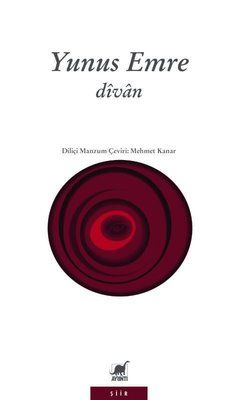
Yunus Emre - Divan
(0) Yorum - 0 Puan
Kategori
Yazar
Stok Adedi
60 Adet
Stok Kodu
PX00000261471
Stok Durumu
Stokta Var
Yayınevi
Fiyat
18,73 USD + KDV
%20 indirim
18,73 USD
14,99 USD
Yunus Emre - Divan Kitap Açıklaması Aşkın aldı benden beni, bana seni gerek seni / Ben yanarım gündüz gece, bana seni gerek seniNe varlığa sevinirim ne yokluğa yerinirim / Aşkın ile avunurum, bana seni gerek seniYUNUS EMRE (1240-1320)Anadolu sahasında yetişmiş en büyük Türk şairi ve mutasavvıf. Hayatı hakkında kesin bilgi olmamakla birlikte Sivrihisar’ın Sarıköy adlı köyünde doğduğu, mezarının da oraya yakın bir yerde bulunduğu tahmin edilmektedir. Asıl adı Yunus Emre, mahlası ise Aşık Yunus, Derviş Yunus’tur. Emre kelimesinin türeyişi hakkında birçok farklı görüş vardır. Bunların arasında ilginç olanı, bu kelimenin “amramak” (sevmek) fiilinden türeyiş şeklidir. “Aşık, seven, arzu edilen, imrenilen” gibi anlamlara geldiği gibi “kardeş, birader” anlamına da gelmektedir. Şiirlerindeki bilgilerden evli ve çocuk sahibi olduğu, İsmail adında bir oğlunun bulunduğu anlaşılmaktadır.Her ne kadar ümmi olduğu söylense de tasavvuf yoluna girmeden önce iyi bir medrese eğitimi almış olması kuvvetle muhtemeldir. Eğitim aldığı yer, o dönemin bilgi merkezlerinden sayılan Konya olabilir. Yine onun iyi derecede Farsça, Arapça bildiği söylenebilir. Bazı beyitlerinin ışığında onun Maraş, Kayseri, Tebriz, Nahcıvan, Yukarı Azerbaycan, güneyde Bağdat ve Şam’ı dolaştığı anlaşılmaktadır. Yunus Emre’nin mürşidi Tapduk Emre’dir. Anadolu ve Rumeli’ye derviş yetiştirip gönderdiği bilinen Tapduk Emre, Yunus Emre’yi Nallıhan’daki zaviyesinde yetiştirmiştir.Yunus Emre, resmi yazışma ve edebiyat dilinin Farsça olduğu, bilimsel eserlerin Arapça yazıldığı bir dönemde yetişmiş, Türkçeye geçiş dönemini yaşamış bir şairdir. Bu yüzden eserlerinde bir kelimenin Türkçe, Farsça ve Arapça kullanılışlarına rastlanır. Buna rağmen Yunus Emre 13. yüzyılda Anadolu sahasında Oğuz Türkçesinin en büyük temsilcisidir. Eski Anadolu Türkçesi dediğimiz bu dönem Türkçesinin edebi bir dile dönüşmesinde birinci derecede katkı sahibi olan kişidir. Ahmed Fakih, Şeyyad Hamza, Hoca Dehhanî gibi o dönemde yetişen şairler de dilin gelişmesine katkı sağlamıştır. Şiirlerini genel olarak hece ölçüsüyle yazmakla birlikte, hece ölçüsüne uyan aruz vezinleriyle de şiir söylemiştir. Tek heceli dil olan Türkçe ile aruz vezni uyum sağlamadığından ister istemez aruz hataları oluşmuştur. Kimi zor kavramları Türkçe kelimeler kullanarak rahatlıkla ifade etmeyi başaran Yunus Emre bu özelliği dolayısıyla kendisinden sonra yetişecek şairlerin öncüsü olmuştur. Yunus Emre’nin Risâletü’Nushiyye adlı tasavvufi bir mesnevisi ile Divan’ı vardır. Risale 1307-8 yılında yazılmış olup 600 beyitten oluşur. Çalışmamıza esas aldığımız Süleymaniye Kütüphanesi Fatih Koleksiyonu, 3889 numarada kayıtlı olan yazma bu eserler başlar. Yunus Emre hakkında ayrıntılı bilgi ve bibliyografya için aşağıdaki kaynaklara bakılmalıdır:Mustafa Tatcı, Yunus Emre, DİA, 43/600-606; aynı yazar, Yunus Emre, Dîvân-ı İlâhiyât, H Yayınları, 3. basım, İstanbul 2014, s.9-238; Abdülbaki Gölpınarlı, Yunus Emre Hayatı ve Bütün Şiirleri, Hasan Âlî Yücel Klasikler Dizisi, Türkiye İş Bankası Kültür Yayınları, 7. basım, İstanbul, Ocak 2016, s. IX-XLV. (Tanıtım Bülteninden)
| Yayınevi | : | Ayrıntı Yayınları |
| Sayfa Sayısı | : | 350 |
| Basım Yılı | : | 2020 |
| ISBN | : | 9786053144885 |
| Dil | : | Türkçe |
Bu ürüne ilk yorumu siz yapın!
Kürtler için yapılmış güzel şeylerden bir tanesi
M... A... | 16/04/2025
siparişler hızlıca ulaşıyor, kategori çok. beğendim.
A... U... | 05/04/2025
Sizlerden gayet memnunum emeğinize sağlık
M... A... | 12/03/2025
Harikaydı
Serdar KÖMÜRCÜ | 22/01/2025
Gayet pratik ve hoş
Muzaffer Bora | 12/01/2025
Hızlı teslimat sağlandı .çok iyi bir şekilde bantlanmış teşekkürler. Gayet memnunum. Xwedê we bihêle .
A... Y... | 11/01/2025
&ddjmsd
RODEM ÇAÇAN | 06/01/2025
Sizi seviyorum Pırtukakurdi
Birsen KORKMAZ | 11/12/2024
Berbat
Sema Koç Soğancı | 29/11/2024
İsim yazılı kupa istedim kupada isim yok
F... D... | 09/11/2024


